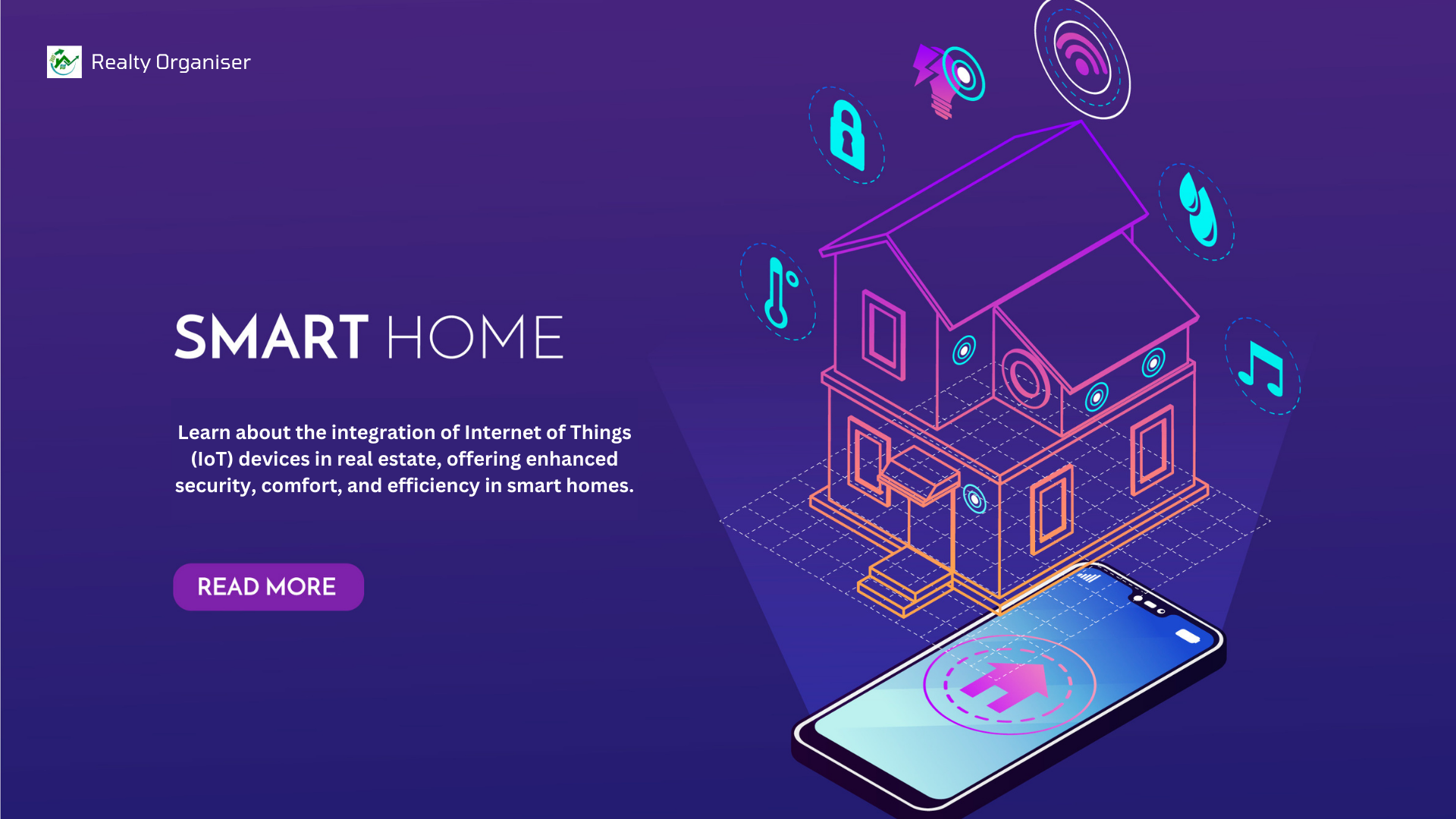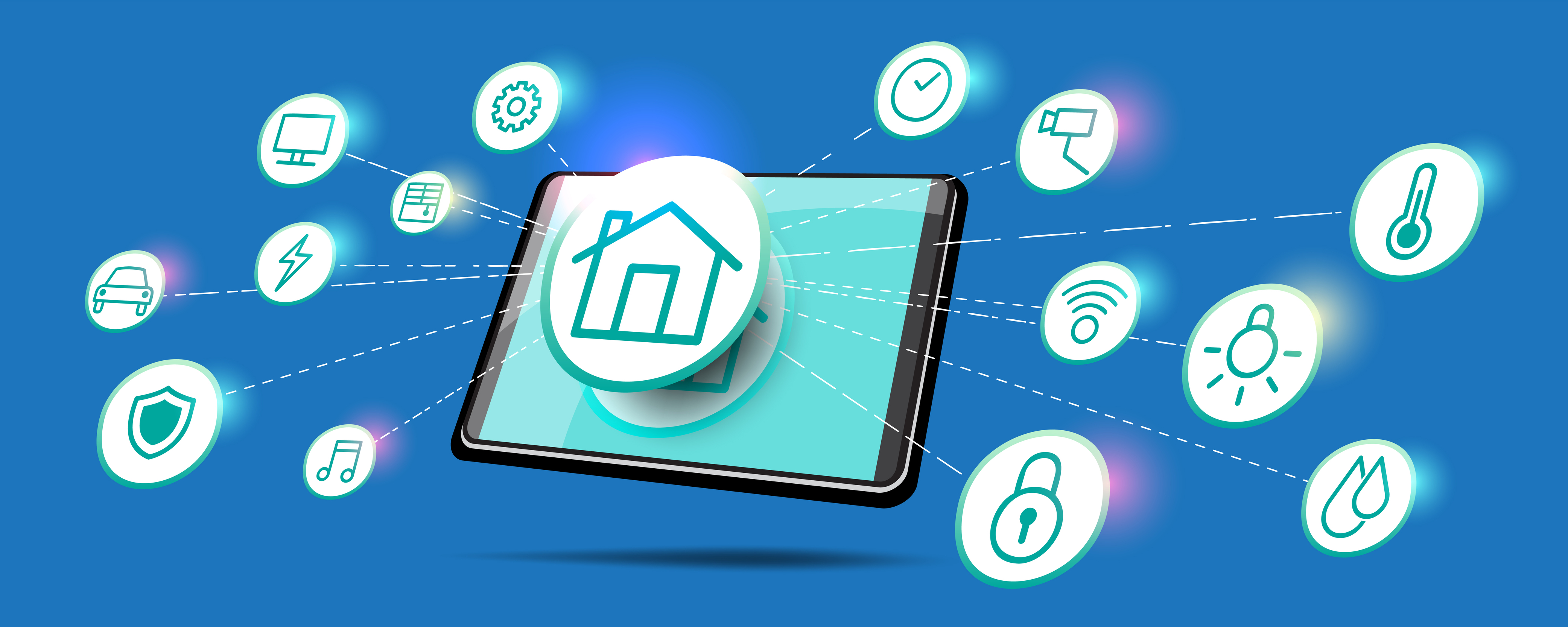
Internet of Things: Enhancing Smart Homes in Real Estate
The world of technology is constantly changing, and one of the most significant developments in recent years is the Internet of Things (IoT). But what exactly is IoT, and how is it revolutionizing the real estate industry? Let's take a look!
Introduction to Internet of Things (IoT)
• What is IoT?
The Internet of Things, commonly known as IoT, refers to the network of interconnected devices and objects that collect and exchange data. These devices can range from simple household appliances to complex industrial machinery, all connected to the internet and capable of sharing information without human involvement.
• Importance of IoT in Modern Technology
In today's digital age, IoT plays a pivotal role in shaping the way we live and work. By enabling seamless communication between devices, IoT has opened the way for smarter and more efficient systems across various industries, including healthcare, manufacturing, and transportation.
The Rise of Smart Homes
• Definition and Features of Smart Homes
A smart home is a residence equipped with a variety of internet-connected devices, allowing homeowners to control and automate household systems remotely. With advancements in technology, homeowners can now control various aspects of their homes, such as lighting, heating, and security systems, through smart devices and mobile applications.
• Benefits of Smart Homes
The integration of IoT devices in smart homes offers numerous benefits, including: Convenience: Control home systems remotely via smartphones or voice commands. Security: Advanced security systems with real-time monitoring and alerts. Energy Efficiency: Automated systems that optimize energy usage and reduce utility bills.
IoT Devices Transforming Real Estate

• Security Systems
One of the most significant impacts of IoT in real estate is the enhancement of security systems. IoT-enabled security cameras, door locks, and alarms offer homeowners advanced features like real-time monitoring, remote access, and intelligent alerts, ensuring the safety and security of their properties.
• Home Automation
IoT devices enable comprehensive home automation, allowing homeowners to automate routine tasks, control home appliances, and create personalized schedules based on their preferences. From smart thermostats and lighting to automated blinds and entertainment systems, home automation enhances comfort and convenience in smart homes.
• Energy Efficiency
IoT plays a crucial role in promoting energy efficiency in real estate by optimizing energy consumption, reducing waste, and promoting sustainable living. Smart thermostats, energy management systems, and renewable energy solutions help homeowners monitor and manage energy usage, leading to lower utility bills and a reduced carbon footprint.
Integration Challenges and Solutions
• Compatibility Issues
One of the challenges in integrating IoT devices in real estate is compatibility issues between different devices and systems. To ensure seamless connectivity and optimal performance, stakeholders must carefully evaluate compatibility requirements, choose interoperable solutions, and implement standardized protocols.
• Security Concerns
With the proliferation of IoT devices, security concerns, such as data breaches, privacy violations, and unauthorized access, have become significant challenges in the adoption of IoT in real estate. Stakeholders must implement robust security measures, encryption protocols, and data protection strategies to safeguard sensitive information and ensure compliance with privacy regulations.
• Solutions for Seamless Integration
Despite the challenges, advancements in technology and the development of standardized protocols and platforms are facilitating seamless integration of IoT devices in real estate. Industry collaborations, open-source platforms, and innovative solutions are driving the adoption of IoT, enhancing compatibility, security, and user experience in smart homes.
Future of IoT in Real Estate

• Predictive Maintenance
The integration of IoT with artificial intelligence (AI) and machine learning (ML) algorithms is paving the way for predictive maintenance in real estate. IoT-enabled sensors and monitoring devices can detect issues, identify maintenance needs, and predict potential failures before they escalate, enabling proactive management and minimizing downtime.
• Enhanced User Experience
IoT technology will continue to revolutionize the real estate industry by offering enhanced user experiences through personalized services, tailored recommendations, and intelligent automation. From personalized property recommendations and virtual tours to automated leasing and smart home customization, IoT will transform the way stakeholders interact with and experience real estate properties.
• Sustainability and Eco-friendliness
The focus on sustainability, energy efficiency, and eco-friendly building design is expected to continue shaping the future of IoT in real estate. IoT-enabled sustainable technologies, renewable energy solutions, and green building certifications will become increasingly important as stakeholders prioritize environmental responsibility, energy conservation, and sustainable development practices.
Conclusion
The Internet of Things (IoT) is revolutionizing the real estate industry by offering innovative solutions, enhancing security, promoting sustainability, and creating personalized user experiences. The real estate industry is expected to accelerate the adoption of IoT despite compatibility, security, and integration challenges. This is due to advancements in technology, growing consumer demand for connected and smart properties, and the industry's dedication to sustainability and innovation.
